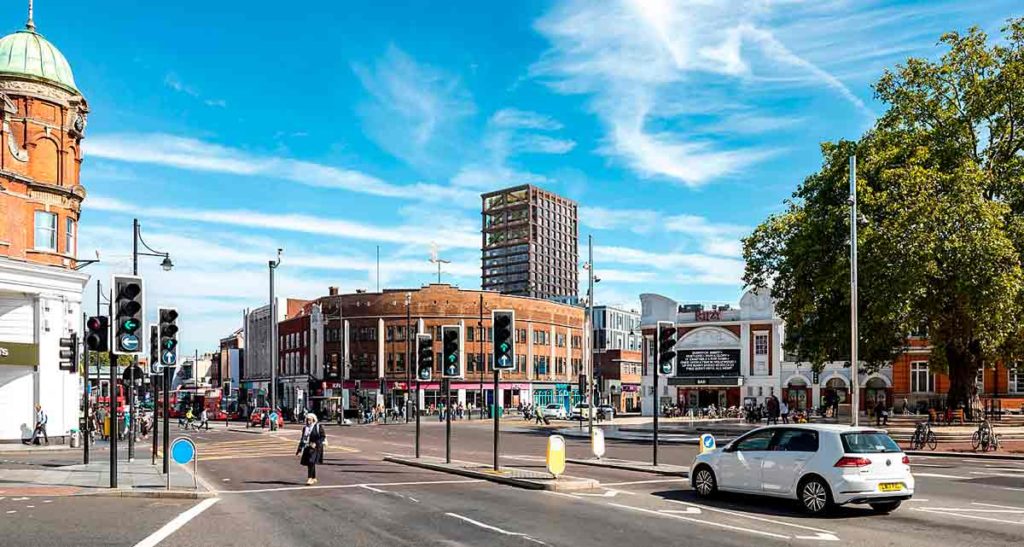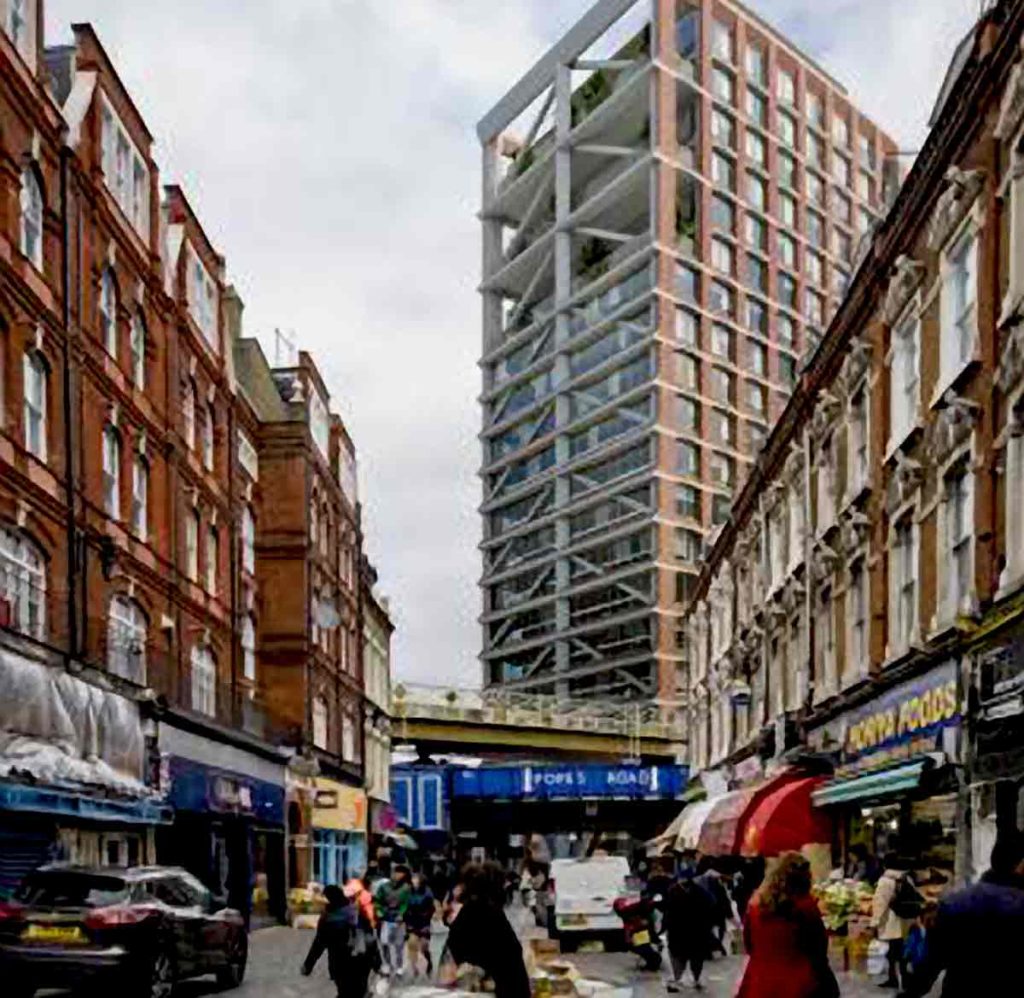
Recent research into how the pandemic could affect demand for London office space has cast fresh doubts over the economic basis for a controversial major development in Brixton.
Studies cited by Space Three Two, an office timeshare marketplace started during lockdown, report that London office sublease availability has jumped to a 15-year high.
Jon Dweck, founder of Space Three Two, said: ”Desk utilisation was already a major issue pre-Covid, with more than 50% of all desks empty at any given moment.
“Post-Covid, due to changing working practices and reduced workforces, we can expect 7/10 of all office desks to be empty at any given time.
Space Three Two said unused office space after coronavirus could cost London businesses almost £13bn.
It also forecasts a “seismic shift” in working habits, quoting a survey conducted in October showing London-based office workers want to return to their offices for an average of only 2.7 days a week after the pandemic and that one in ten does not want to return at all.
The issue of demand for office space post-pandemic was one of the key arguments about the successful application by an Amsterdam-based company, AG Hondo Popes Road BV, to build a 20-story tower on Pope’s Road in central Brixton.
The Dutch company and its London partner Hondo Enterprises, which runs Brixton’s covered markets on a day-to-day basis, say the development will promote economic growth in Brixton, but opponents disagree.
When the Lambeth council planning committee considered the application on 3 November, Dulwich and West Norwood MP Helen Hayes, whose constituency includes central Brixton, stressed concern over the likely demand for office space of the kind offered by the Brixton development.
Hayes said: “At a time when so many businesses are making staff redundant and continuing to support home working, it is likely there will be a surplus of office space in London”.
Opponents raised concerns that plans for the tower had not been based on any robust research on the demand for office space in Brixton nor on the effects of the pandemic.
The Brixton Society also questioned the economic benefits of the tower.
“Our concern is that, with falling demand for office space across London, the 19 storeys of new office space will prove to be a white elephant,” the society said.
“Worse than that, the government has expressed its intention to further relax the rules on permitted development rights.
“These allow owners to convert office accommodation into flats without the need to ask for planning permission.
“Unlike purpose-built flats, there is no obligation to provide a percentage of affordable housing.
“The most likely scenario, then, is that most of the office space will not attract tenants, so that, in due course, the empty Hondo Tower would be converted into poor quality private rented flats.”
Helen Hayes told the committee that any documentation from the developers promising the building will not be used for residential purposes was “unlikely to be worth the paper it is written on”.

Nabeel Khan, director of economy, culture and skills for Lambeth council, said that Lambeth is one of only two London boroughs to see a decline in office space over the past ten years.
He argued that there will be a desire to use Brixton as a hub for new office space and business developments after the pandemic.
Khan also pointed out that part of the proposal for the new development includes affordable workspace for Brixton-based charities and social enterprises.
Lambeth council’s head of development management Rob O’Sullivan said that he was confident there would not be the possibility to change the offices to residential space.
Councillor Clair Wilcox, chair of the planning committee, who voted in favour of the proposal, urged its members “not to look at the proposal as luxury flats but in terms of opportunities for businesses that would otherwise outgrow Brixton”.
Space Three Two today (16 November) announced the signature of the first-ever office timeshare agreement between Pod Talent and The Hive, both recruitment businesses based in London.
They will share one office for two and three days a week respectively.
Pod Talent will reduce its office costs by 40%, while The Hive will reduce its office costs by 60% with no need for a fit-out.
The two companies’ energy consumption is estimated to reduce by 35-40%.






